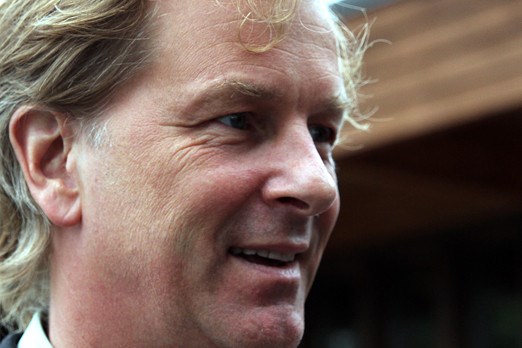Richard Heinzl has been to some of the world’s most war-torn regions.
But the founder of Doctors Without Borders says people are pretty much the same wherever he goes.
“They’re up against challenges and it takes creative thinking, energy and commitment to make a difference in those parts of the world,” said Heinzl, a Hamilton-raised physician who traveled to Thunder Bay on Thursday to give a speech at Confederation College.
Like many ventures, his experience with Doctors Without Borders is nothing like he imagined when he helped kick it off at the tail end of the Reagan era.
“In the beginning we were young kids in our 20s and we were extremely idealistic. We wanted something that would change the world,” he said.
“We were watching this on TV and thought people deserved better, so we just stepped out there in pretty inexperienced ways. Over the many years now, of course we’ve grown in our expertise and our ability to do the work. It went from just a handful of people to hundreds who have gone overseas and we’ve raised millions of dollars and sent it to some of the neediest people around the world.”
The worldwide organization, originally founded 40 years ago in France, got its start after a group of French doctors returned from Biafra.
They realized the world needed a way to quickly respond to public health emergencies, including armed conflicts, floods, earthquakes and epidemics of disease.
The Canadian chapter was formally inducted into the international movement in 1989 and recruits volunteers to head overseas and raises public awareness.
In the past 20 years, Canadian doctors, nurses and other volunteers have taken on more than 1,800 field assignments, in more than 80 countries, including Afghanistan, Bosnia, Cambodia, Rwanda and Sudan.
Heinzl, named as one of the hundred people who make a difference in Canada, said the organization is always on the lookout for other health care professionals to follow in their footsteps.
“We’d love to see nurses, doctors, other kinds of people who want to do this work. There are lots of people here who have traveled the world and could make a great contribution. We do hope that happens. I think it’s important that people understand just what is out there in the world and what happens to people when they get caught up in war and poverty.
“And I think hearing about that is the first step. Then what people choose to do with that is a very individual, personal decision and it could be anything from supporting us as an organization to actually going there one day.”
